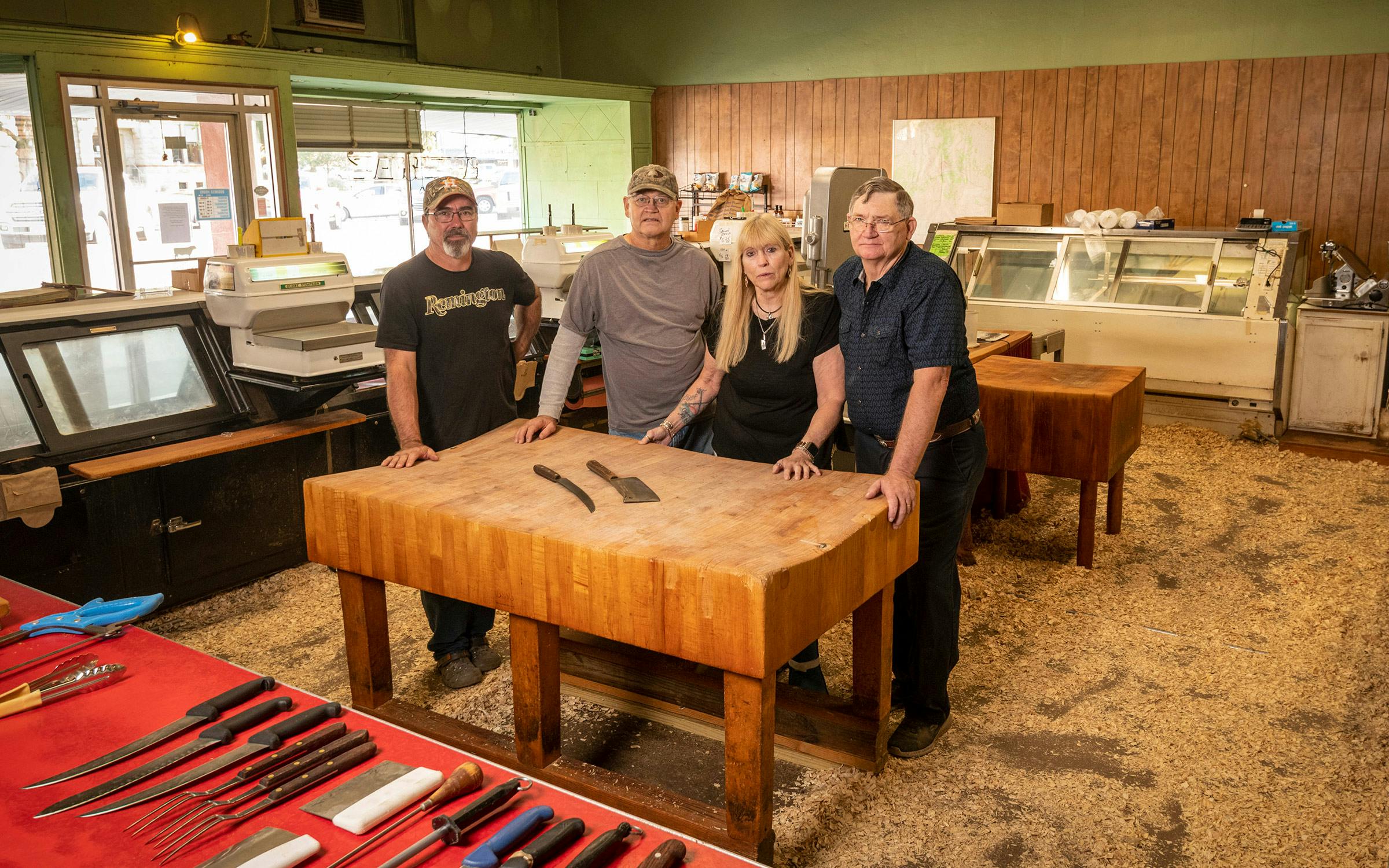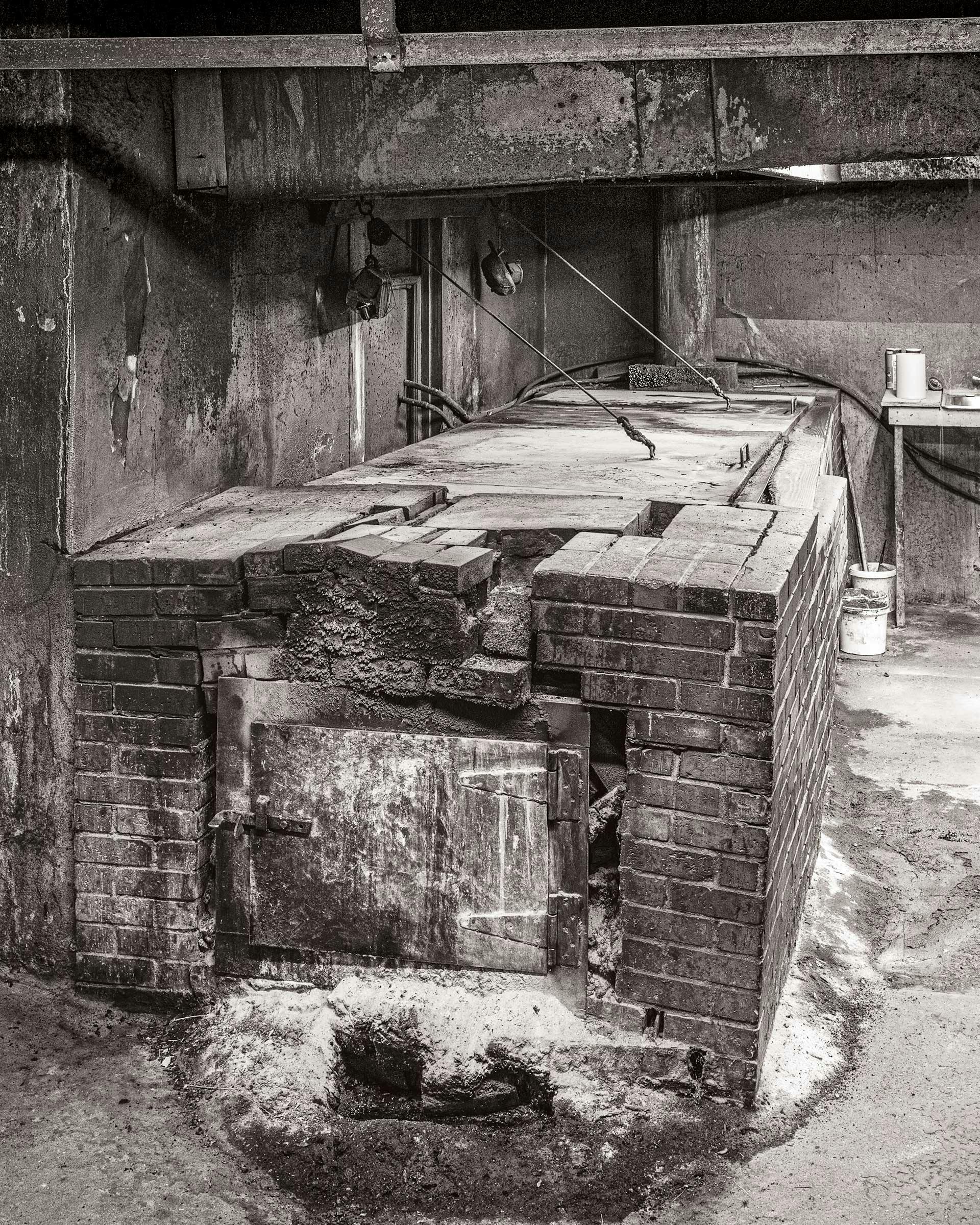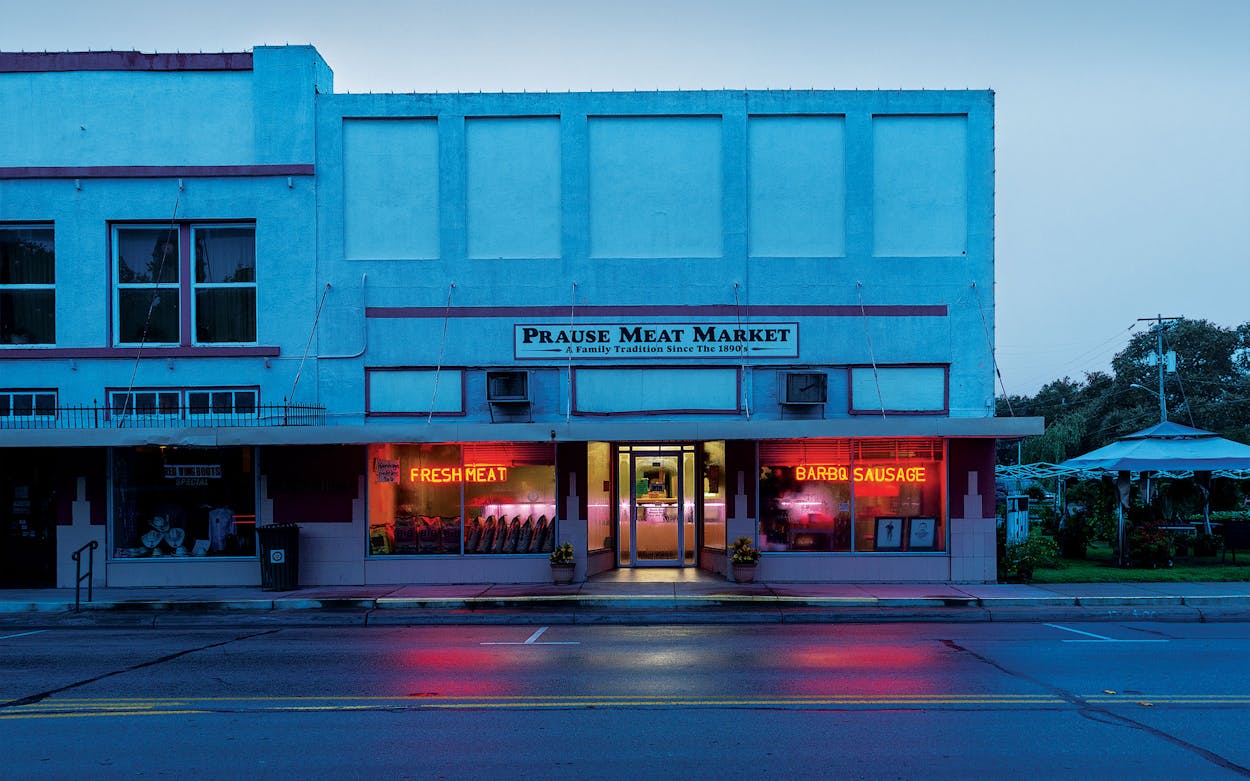On the last day of March, a sign went up on the door at Prause Meat Market, in La Grange. The historic barbecue joint and market would be closed temporarily, it said, as a response to the pandemic. But despite what they were telling customers, the family felt like it might be the end for the business, which was deep into its fourth generation.
Many residents of the town of about 4,600 people, which sits between Austin and Houston, had probably assumed Prause Meat Market would always be there. Sure, it wasn’t a secret that the market had been for sale since 2013. But the Prause family had processed and sold fresh meat in town for more than a century, and it was hard to imagine they would ever stop. Markets like Prause are the roots of Central Texas barbecue, and it was one of the few remaining joints that still featured a fresh-meat case. But in August, more than four months after the temporary closure, the Prauses announced that they had found a buyer, who had plans to renovate and rename the place.
Kathy, Brian, Gary, and Mark Prause are tired. The cousins (Kathy and Brian are siblings) are in their sixties except for Mark, who is 56 and suffers from poor circulation in his legs. Kathy requires a wheelchair because of an ankle injury that almost cost her a foot. Gary’s declining health made the spring closure for COVID-19 a no-brainer. “I had two heart attacks,” he says. “I’ve got fatty liver disease. I’ve got diabetes. I’ve got asthma, so if I catch COVID, COVID’s gonna love me.”
The Prauses were already weary when I first interviewed them six years ago, after they put the market up for sale. Their workload had grown considerably since their fathers had retired, and the fifth generation wasn’t interested in continuing the tradition. Their stalwart pitmaster, Monroe Schubert, retired in 2013 after a 48-year career. Mark, who had stoked the crumbling brick smoker along with Schubert, took on all of the pit duties himself. That left the four Prauses and longtime employee Dennis Ahlschlager, who is now 66, to operate the place, which looked a whole lot different than when their great-grandfather Arnold Prause first opened a market in La Grange more than a century ago.

Family lore has it that Prause Meat Market opened in 1904. But according to the 1910 census, Arnold Prause, the son of an immigrant from Prussia (now Germany), was at that time still operating a butcher shop in Fayetteville, twelve miles east of La Grange. It wasn’t until 1911 that he opened his first butcher shop in La Grange; in 1914, he moved to a new building on the east side of the courthouse square and called his shop the Palace Meat Market. (When he cut his index finger while sawing a hindquarter, it made the La Grange Journal: “While a bit painful, it has not kept the victim from attending to the business.”) Soon, though, he took a hiatus from the meat business, working for a few years as a manager of the city’s “poor house,” according to the Journal. By 1922, he was back behind the meat counter after buying another market. An ad in 1924 for Prause Market advertised “barbecued meats” as well as fresh cuts.
The market would have two hiatuses; the first was when Prause retired in 1934. Two of his three children, Glen and Jimmy, took up the mantle again in 1941 but closed Prause Market in 1950 while Glen’s three sons served during the Korean War. In 1954, Glen and sons took over the space occupied by a menswear store on the south side of the square, which is where Prause Meat Market would remain for the next 66 years. The business model of fresh meat up front and barbecue in the back endured.
When I first visited Prause in 2010, sausage, bacon, and raw beef were stacked in glass cases. I went past the pit room, where a hulking brick pit breathed fire and smoke and looked ready to tumble over, and made my way through the “eatin’ room,” with avocado walls and bright red tables, before I finally reached the barbecue counter. Brisket, house-made sausage, pork steak, and the specialty, smoked pork roll (a boneless pork butt), were on offer until they sold out.
An image from longtime Texas Monthly photographer Wyatt McSpadden’s first book on Texas barbecue was the siren song that led me to Prause’s, and an email from McSpadden is how I learned that the market wouldn’t be reopening. His first visit to Prause was in 1995, when the third generation was still in charge. Even back then the meat-market-first business model had become a rarity. “It was workingman’s barbecue,” McSpadden says of the brief, never-changing menu. The eating room was filled with railroad workers, farmers, and line workers. Neither the customers nor the owners seemed to notice or care about the innovation happening to Texas barbecue outside the walls.

The market/joint hybrid is “a dying breed,” says Brian, who compares the family to dinosaurs, except they could see the meteor that was headed their way. The business, like many restaurants, offered no benefits or health insurance to entice employees, and operating a butcher shop is grueling work. “We couldn’t even spell the word ‘vacation,’ ” Mark jokes. Toward the end, “We were just doing a whole lot more than our bodies were letting us do,” Gary notes. While it’s sad to see the place close, it’s easy to feel relieved for the family.
The new owners of Prause Meat Market are a Houston-area couple who recently bought property outside of town that they’ll transform into their family ranch. Angelo and Aneca Hinojosa plan to repair the smoker so they can cook barbecue and serve it under the name Texas Pride Smokehouse and Meat Market—it will be their first restaurant. After several months of renovations, they plan to offer breakfast tacos, barbecue lunches, and steaks for dinner as well as a selection of raw meat, sausage, boudin, and beef jerky. Says Angelo, a third-generation watermelon farmer: “We’ve been looking for a place to call home.”
Before the Prauses turned over the keys to the Hinojosas on August 17, Gary, whose first job at the market in 1966 was sweeping the floors, went to the market early to get it ready. He turned on the lights, grabbed a broom, and looked around while he had the place all to himself one last time.









